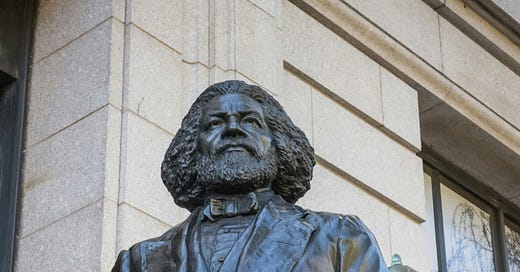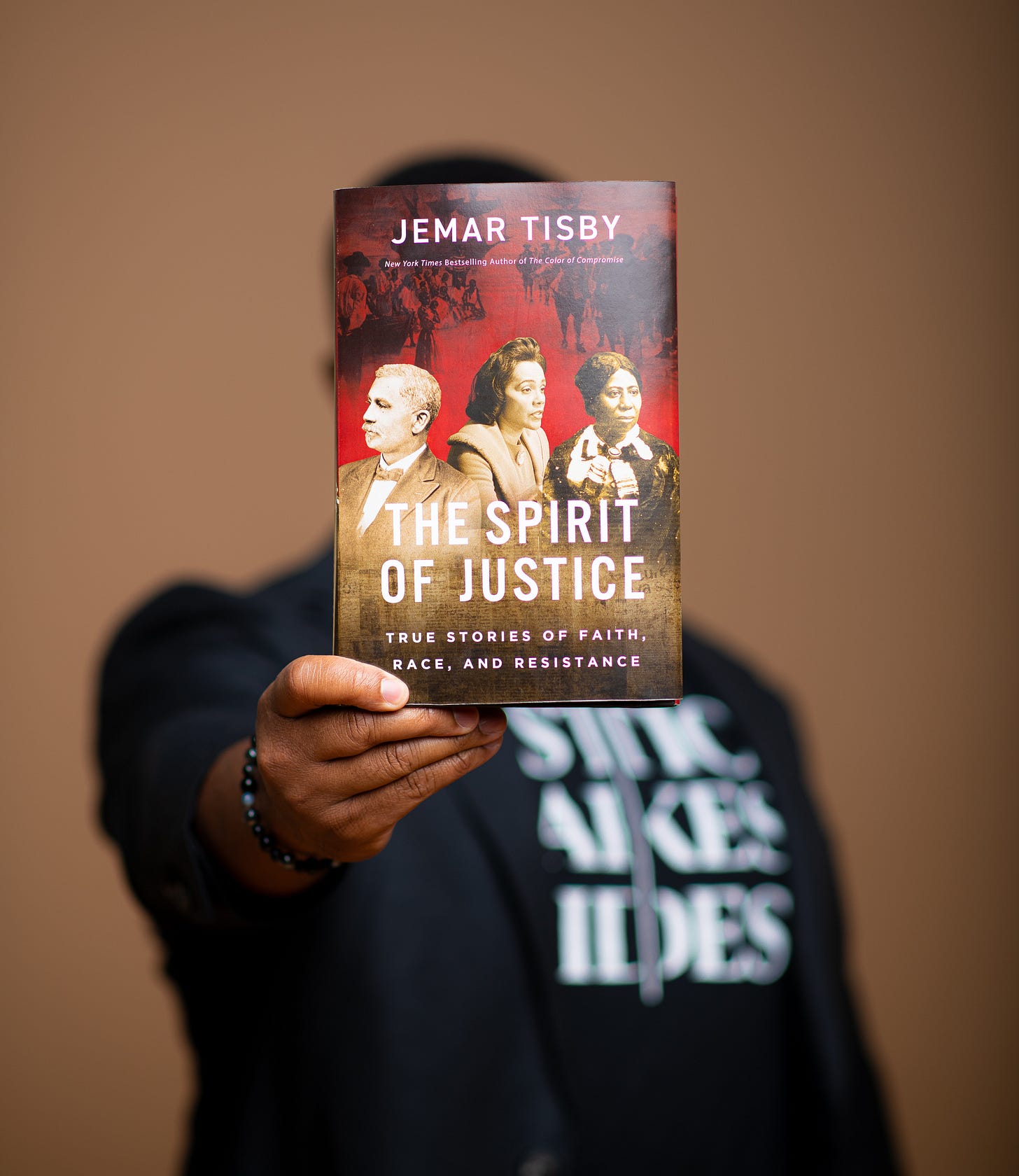What Did Frederick Douglass Say about Voting?
The legendary abolitionist had no patience for idealistic fantasies.
In 1883, a man identified as Private Dalzell wrote to Frederick Douglass inquiring about the the famous abolitionist’s position on the “colored question” and voting.
Douglass’ words reveal a clear-eyed, pragmatic approach to politics that many Black Americans have displayed since at least the passage of the 15th Amendment in 1870 that granted Black men the right to vote.
The political calculations Black people have had to make in the United States offer perspective for the current political climate.
The nation stands at the precipice of deciding between an autocratic, white Christian nationalist government for the few or a participatory, multiracial democracy for the many.
How voters think through their choices matters immensely. Perhaps the bracing words of Douglass will serve as a wake up call for some.
It is critical to remember that the Democratic and Republican parties underwent a platform realigment in the mid-20th century. The original references in this archival letter have been preserved for historical accuracy, but the references to the Democratic party and the Republican party should not be conflated with the modern-day positions of each.
Read this epic X/Twitter thread about political party realignment by Princeton historian, Dr. Kevin M. Kruse. Read on ThreadReader.
Read the entire thread HERE.
First, Douglass addresses the buzz that followed his comments at the recent Colored Convention in Louisville, Kentucky in which he gave a speech titled, “Why Hold a Colored Convention?”
In the letter, Douglass explains that he is a political independent—he maintains his right to speak up against either party. But he is an independent who supports the Republican party.
Washington D.C., Oct. 3—I see that my views at the Louisville [Colored] convention are variously commented upon. I am thought to be an independent, and so I am, but I am an Independent inside of the Republican party. I can have all the independence I want inside of the Republican party.
I am both independent and dependent. I do not take a step in life that I am not dependent on somebody or something.
In politics I am dependent upon one or the other political party, and I am foolish enough to think that the Republican party may as safely be trusted with the destiny of the Republic and the rights of the colored people as the Democratic party, and in this I know I am right.
With scathing candor, Douglass explains why he thinks it would be foolish to support the political party bent on turning back the racial progress of the nation and reinstating white supremacy in its fullest forms.
For the life of me I cannot see how any honest colored man who has brains enough to put two ideas together can allow himself under the notion of independence to give aid and comfort to the Democratic party in Ohio or elsewhere.
Douglass knew, as did most Black people then and ever since, that neither party offered a satisfying solution to the inequalities and victimization Black people faced.
But the inadequacies of both parties does not mean that each party is equally harmful.
If Black people supported the political party that overtly appealed to white supremacy and sought to regain an imagined, idyllic past, then they would be counted as self-sabotaging ignoramuses in Douglass’ opinion.
Woe to the colored people of this country when the Republican party shall triumph in spite of the treacherous votes of colored men. Bad as our condition now is, it would be worse then. We should neither have nor deserve the confidence of any party, and would, to use a slang phrase, ‘Be out in the cold.’
Douglass points the way forward in politics—when voting for a particular party, press them to satisfy your concerns.
Hold your preferred party accountable to the promises it made while simultaneously doing everything possible to keep that party in control of the government.
My advice to colored men everywhere is to stick to the Republican party. Tell your wants, hold the party up to its profession, but do your utmost to keep it in power in State and Nation…
In the conclusion to his letter, Douglass portends a radical racial shift in politics. If Black people can hold the second-highest political office in the land or obtain Cabinet-level positions, he would take that as a definite sign that racism is on the decline.
In this assertion, Douglass seems to have foreshadowed Kamala Harris as a political figure.
She attained the office of Vice President and now, for the first time in history, a Black and South Asian woman has earned the presidential nomination of a major political party and could become President of the United States.
What I said was that no class of American people could afford to be excluded from participation in the administration of the Government, and when a colored man could be elected to the Vice-Presidency or hold a seat in the Cabinet, the color line would no longer be significant.
Many people have tied themselves up with tension as they consider their presidential election options.
They cannot vote for Donald Trump for many reasons—his lies, his racism, his sexism (including being found liable for sexual abuse), his corruption, and his convictions.
At the same time, they may have their issues with Harris, too. She was a former Attorney General who put Black and brown people behind bars, she has not taken a firm enough stance to halt the genocide in Gaza, she is pro-choice on abortion.
Choosing between two candidates—neither of whom represent your values completely—is nothing new. And it is not an excuse to withdraw from the political process.
Frederick Douglass knew that in a binary political system, there would be one party that more clearly stood for racial progress and unity than the other.
For him, there was no question which party to support.
Political options today remain as binary and as clear as they were 140 years ago. Make your choice.
What are your takeaways from Frederick Douglass’ words? Comment below.
I talk more about Frederick Douglass in “The Spirit of Justice.” I talk about his views of “slaveholder Christianity.” And I devote an entire section to his wife, Anna Murray Douglass, whose image graces the cover of the book. Pre-order today!






Very helpful to draw a line from Douglas to Harris
The idea that we would agree completely with any one candidate or party is a pipe dream. We have to closely examine each candidate's policies and personal attributes to determine which is the better candidate. In my opinion, there is no contest in this election. I will be voting for Kamala Harris. I say that as a white upper middle class person who would personally benefit from Trump's economic policies. That isn't the most important factor for me though. When did we stop caring about helping our fellow human beings?